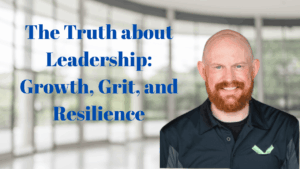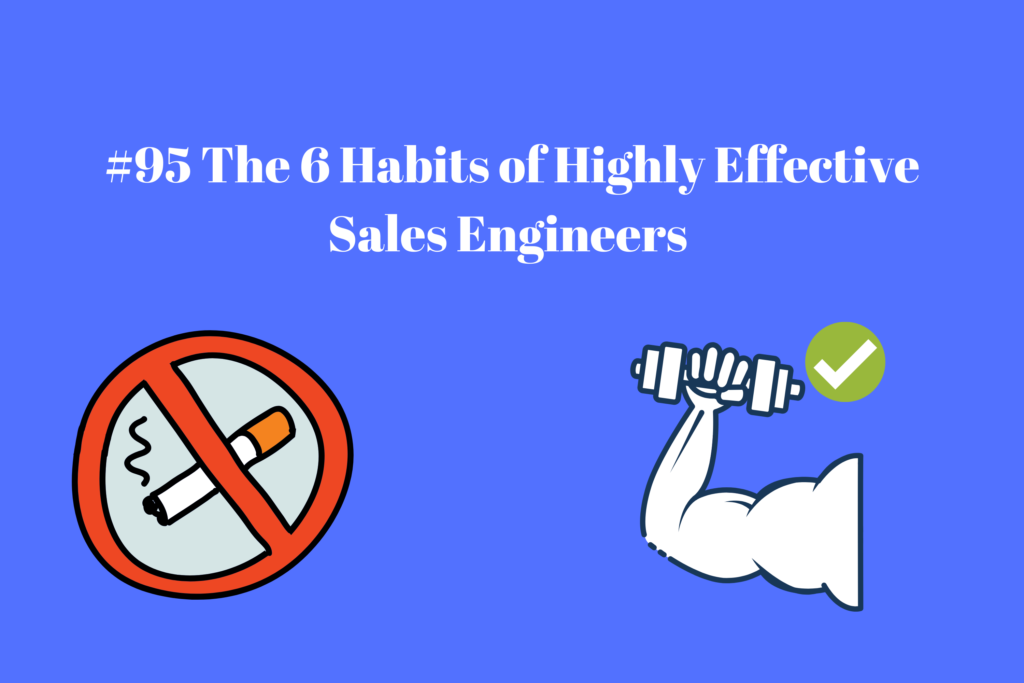
Blog
Chris White is an accomplished author, trainer, coach, teacher and Sales Engineering leader. He penned “The Six Habits of Highly Effective Sales Engineers”, an amalgamation of over a decade of experience in the field where Chris is able to articulate the importance of a number of key habits that will lead any SE to success.
Today’s show covers the 6 main habits plus some bonus ones that you’ll only find here!
In this show we will discuss:
There’s more to being a killer SE than being able to talk while moving a mouse around.
Remember that as an SE, you’re in sales. Understand the process of things.
You have to understand their objectives, problems & requirements.
Instead of making it about us, we have to make it about them.
Tailor the conversation to what you’re hearing.
Pre-sale conversations are very different from post-sale conversations.
You have to know your audience, what they care about, what words will resonate with them, what will not, etc.
Remember this:
A person who goes into a store to buy a shovel doesn’t actually care for the shovel, they care about a hole;
But they don’t actually care about the hole, they care about planting a tree;
But they don’t actually care about the tree, they care about the privacy or perhaps fruit that comes from the tree.
If you uncover the actual reason a prospect is speaking to you, the better you can tailor the conversation to that prospect.
You have to EARN the right to be able to say no to your account managers.
Account reps LOVE SEs that help them close business.
If you prove to them that your time is valuable, they will learn to respect it.
You have to earn the right to do the things you like to do and not the things you don’t.
Make sure that you’re filling the gaps of skills that you need to. In general, sales/people skills are those that you should spend a lot of time developing, but if you have gaps in your technical knowledge, make sure you are addressing them.
Your Account Executive/Manager can help you define your priorities.
The importance of a qualified yes vs. qualified no.
Is what you’re saying no to important?
The 6 Steps of Highly Effective Sales Engineers. (Be Proactive)
1- Partner – Foundational Habit
You are going to be working with your Account Executive/Manager A LOT. Get Along!
The SE is responsible for the technical win.
This means presenting the solution in a way that instills confidence and comfort with the prospect that your solution will do what they need/want.
The Account Manager is responsible for the whole account and the final revenue coming in.
Remember, sales is a team sport. Everyone’s got to play their part.
If you’re having trouble meshing with your AE/M, find common ground with them, whether it be going out for lunch, drinks or somehow finding something else you have in common with them. It’ll make your life easier down the line.
2- Probe
Doing a discovery is important.
If you want to deliver a kick-ass demo, make sure the demo is properly qualified.
You don’t want to be caught with your pants down.
Make sure big demos are qualified very well so that you know you’ll have the time to prepare sufficiently.
When in Discovery – STAY in Discovery. Don’t put your solutions hat on right away.
3- Prepare
Know how much to prepare
Be careful not to over-prepare
Keep in mind the story of the demo
Don’t just focus on the content.
Don’t “Dash to Demo”, take the time.
Have to ask yourself/your account manager: “Do you want to just do demos or do you want to close deals?”
4- Practice
What’s the worst thing to happen on a click? A surprise.
Make sure you know what’s going to happen.
Click every click – make sure everything is working right.
What’s worse, taking the time to make sure things are right or be embarrassed in front of a prospect?
Bell curve of practice – the perfect amount of practice is something that lives in the middle of the bell curve.
5- Perform
There comes a point when the spotlight is on you.
You are saying things that can either make or break the deal.
You have to know how to perform for your audience.
You want the wanting your solution, wanting to find out more about your solution.
6- Perfect
Don’t spend time preparing the perfect demo.
Use perfect as a verb in regards to your demo.
Learn from what did and what didn’t go well.
If things didn’t go well – look back on why.
Debrief.
BONUS HABIT:
7 – (Be) Proactive
Enable your sales partners to help you.
Learn who Jerry Maguire is.
Some more links from the show:




This Post Has 3 Comments
Pingback: #99 The Importance of Discovery | We The Sales Engineers
Pingback: #121 From Accidental Sales Engineer to the Founder of We The SEs | We The Sales Engineers
Pingback: #151 Working Together Through The Middle of the Funnel | We The Sales Engineers